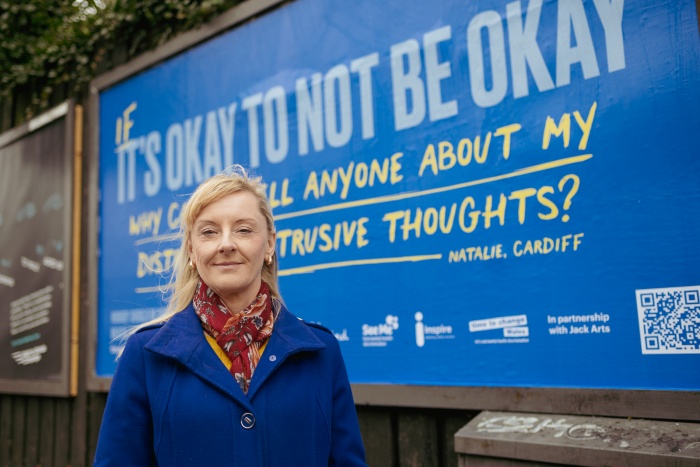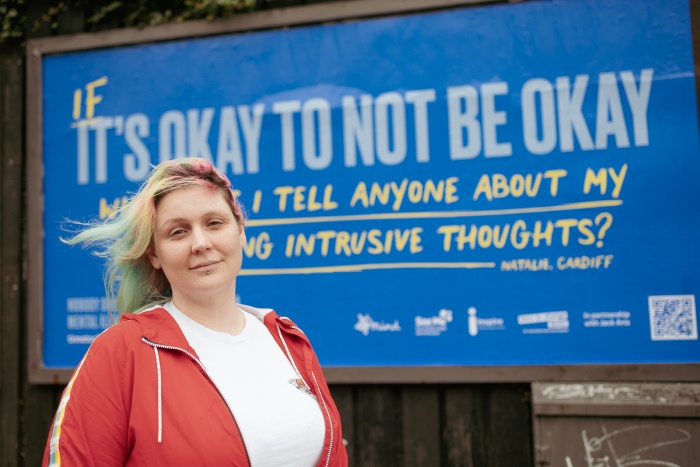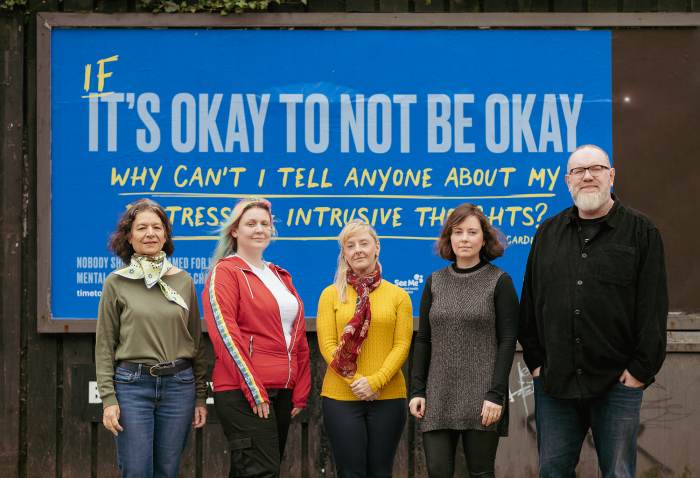People around Wales (57%) say they still feel shamed for living with a mental illness, regardless of the progress over the years to break down the stigma around mental health.
Alarmingly, 62% of people in Wales believe that there is a great deal/fair amount of shame associated with Schizophrenia. Furthermore, a troubling 9% of adults in Wales believe that individuals living with mental illness should be ashamed of those conditions.
This is why the UK Anti-Stigma Alliance – a partnership between mental health charities across the UK – has launched its If It’s Okay campaign.
“It’s okay not to be okay” is one of the most well-used lines in mental health campaigning. But, for many experiencing mental illness, this does not always ring true.
As part of the campaign, the partnership is calling on the public to mean what they say when they say, “It’s okay not to be okay”. It also calls on people to challenge shame and discrimination for those living with a mental health diagnosis. The campaign aims to tackle what this phrase might actually mean for those living with mental illness.
The voices of those with lived experience sit at the heart of a campaign centred on the personal impact of shame stemming from mental illness.

Natalie from Cardiff said: “I’ve been told ‘there’s no such thing as depression, people just need to get on with things’ or that ‘you’re the last person I’d expect to suffer mental illness”. Those comments led to feelings of shame when I was really struggling with my mental health.
When my burnout eventually peaked, I turned to my GP for support, but I still felt alone and confused after being prescribed SSRIs without an explanation as to what was happening to me or why. It was a few kind words from a nurse taking my ECG reading that provided a moment of realisation for me, she said, ‘this is your body’s way of telling you to slow down love and look after yourself.
Look after your mental health by reflecting on your thoughts and feelings, be self-aware and talk to your friends and family or anyone you trust. Talking to others, honestly, about my mental health has strengthened my relationships and made me feel less alone. A problem shared really is a problem halved."

Izzy from Pembrokeshire said: “I was first diagnosed with mental health issues at 14 years old. I hid it out of shame and fear, mostly guided by media misrepresentation and very low awareness, though I finally 'came clean' by opening up quite publicly about my struggles in 2016 which completely changed the direction of my life.
Since then, I have fulfilled many roles such as being a listener, advocate, mentor, and support system for so many friends and strangers yet I still, almost weekly, find myself struggling with shame. When will we start to show ourselves the understanding we always grant to others?
Of all the ways I have been lucky enough to find purpose by embracing who I am, being kinder to myself is still one aspect I have yet to master.”
Individuals from all over the UK and Ireland have outlined their experiences and, from today, the partnership is sharing these on billboards in over 150 sites in Wales, Scotland, England and Northern Ireland, as well as on social media.
The study of 500 respondents across Wales also revealed that 1 in 6 people (16%) would be concerned about working alongside someone who is living with mental illness, with a majority (56%) of respondents agreeing that people experiencing mental ill health are portrayed negatively in the media.
Nearly three-quarters of people (72%) also said the public should be more considerate in the way we talk about mental health to avoid making people feel upset or ashamed.
The findings also highlighted concerning attitudes where 22% believe that “sociopath” and “totally OCD” are acceptable everyday terms, and 17% of people expressed the same views on “crazy” and 15% for “a bit mental”.
Campaigners say these findings cement the view that everyone in Wales has a role to play in ending shame around mental illness, as the language we use in day-to-day life can affect how somebody perceives themselves.
Lowri Wyn Jones, Programme Manager for Time to Change Wales, said: “As an alliance of anti-stigma programmes across the UK, we are too often told about the shame and judgement people face for experiencing a mental illness, and Time to Change Wales alongside its partners felt compelled to challenge that head-on. Whilst concerted effort and significant progress have been made over the years to normalise conversations around mental health, much still needs to be done to address the fact that some people in our society still experience debilitating shame, often limiting them from living a full and fulfilling life.
Central to our campaign are those with lived or living experience of mental illness telling their first-hand accounts of experiencing shame from friends, family members or colleagues and the impact it has had on them. This campaign seeks to challenge public attitude and behaviour calling it out through the use of compelling, real-life verbatims gathered from across the UK. As a nation, we must do better and look inwardly at our own behaviour towards others and how we can become more compassionate and hopefully think twice about what we do, say and act.”
For information about the If It’s Okay campaign, including advice and information for anyone living with mental ill health, please visit: www.timetochangewales.org.uk/en/campaigns/if-its-okay and join the conversation on social media by using the hashtag #IfItsOkay.

